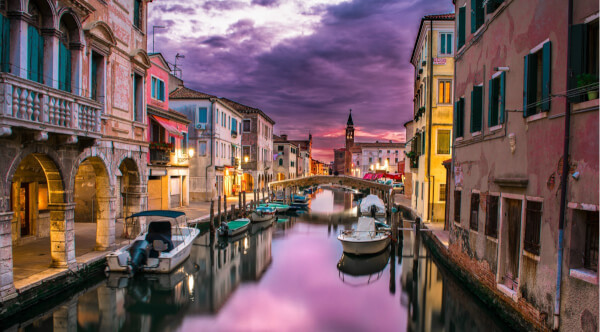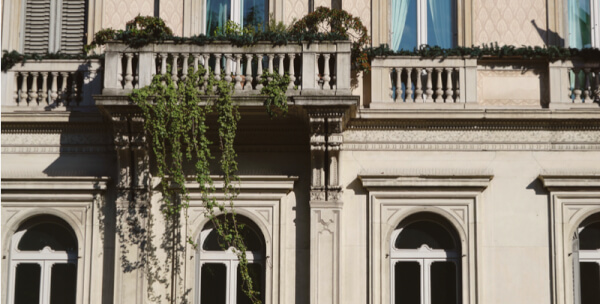Retire in Italy: full guide
Get ready for la dolce vita with our guide on retiring in Italy.

Getting married in Italy is relatively straightforward. Like any wedding though, it requires advanced planning, as well as a basic understanding of the law. You’ll need time to have in-person conversations, visit various offices and meet administrative deadlines. However, thousands of expats get married in Italy each year, and with good reason.
Italian weddings are known to be colorful, vibrant and fun affairs. From the food to the atmosphere to the lively music, there’s plenty on offer. It’s only natural that a wedding celebration would take place in a country where celebrations are taken seriously.
Italy holds a special place in the heart of many couples, whether they met there, have family there or have been on a romantic Italian trip. No matter the reason, this article will help you with what you need leading up to your wedding in Italy. Find the facts on legal requirements, mandatory documentation, estimated costs and suggested locales.
Italy legally recognises religious and civil weddings. Couples are also free to pursue secular symbolic ceremonies, although they're not legally binding.
The majority of Italian weddings take place in a church, due to the country’s overwhelming Catholic majority and the proximity to The Vatican. However, Italy recognises religious weddings from all faiths, including Jewish, Hindu and Muslim religions. In most cases, the marriage process under these religions is similar in any country, including Italy.
For non-Catholic religious weddings, a civil ceremony must be incorporated into the marriage before a wedding is officially legal. You’ll be required to prove you're civilly married before you can celebrate in a religious house of worship.
For non-religious couples in Italy, symbolic ceremonies and blessings do take place. The couple should follow the civil administrative procedure prior to the ceremony if they wish for the marriage to be official and legal.
For same-sex couples in Italy, civil unions are officially recognised, but same-sex marriage is not.
Anyone can be married in Italy, as there's no legal residency requirement for a wedding. Whether foreign or not, you’ll have to provide paperwork that certifies your identity. You also must certify that there are no legal obstacles standing in the way of your marriage. A foreign national marrying an Italian citizen does not need to have a visa to hold a wedding in Italy.
Couples must be 18 years old to legally marry, and under-18s must have written parental consent. Muslim individuals aged 16 can marry with the permission of sharia authorities.
You will need to prepare all necessary paperwork required for a civil, religious or symbolic wedding in Italy. Plan to have the following documents at hand:
A Catholic wedding may also require some or all of the following documentation:
Your first step should be to contact your home country’s consulate in Italy. They will advise you on the specific steps you need to take, including the preparation of the atto notorio.
You’ll submit your declaration of intent to marry to the local marriage office in the city’s town hall where your marriage will be performed. This declaration will go to the civil registrar. A translator should attend if you don't speak Italian. You’re officially invited to set the date of the wedding after this intent is declared.
You should plan the do this at least three weeks in advance of your wedding. Civil notifications must be posted for two consecutive weeks, including two Sundays, before a wedding can take place. If neither party is an Italian citizen or resident of Italy, you may contact the office to waive this requirement. You might be able to expedite your waiting period to as little as a day, depending on the local town hall regulations.
For Catholic weddings specifically, you may have to conform to the rules of your local parish, as well as the parish where you intend to marry. Plan to submit all of your religious documents to the local Italian marriage documents no later than seven weeks prior to your wedding date. They must be processed at your consulate and with the Bishop. Contact your local parish and the parish where you'll marry for specific advice.
At the wedding, you'll sign your legal marriage license. You will be given an official marriage certificate that's authorised by the mayor in the municipality where you marry. After the marriage, you should plan to visit the town hall again to present the marriage certificate. There you'll receive an Apostille stamp which verifies the document and contains a translated copy of the certificate into English.
You should expect to pay the following fees for your Italian wedding:
You may also face some local administrative fees, or charges specific to your parish. Inquire directly with the venue where you'll marry in advance.
As long as you’re thinking about your budget, don't lose money to unfair bank fees or marked up exchange rates. Instead, use a Wise Borderless account, which allows you to hold and manage money in multiple currencies.
Civil ceremonies can occur in any location that's been approved by Italian authorities, indoors or outdoors. Many villas, castles, public gardens and town halls are approved for use. In smaller locations, a civil ceremony will be performed by the mayor or a town officer. An interpreter is required if neither person in your party speaks Italian, but they don't have to be an official translator. The amount of time required between declaring your intent to marry and your actual wedding date will vary by location.
The only church ceremonies that are legally performed without a civil component are Catholic weddings. One person in the couple must be Catholic. You should anticipate a longer planning period for a Catholic wedding, due to coordination between your local church, the Italian church, city officials and consulates. It’s a good idea to start planning six months before your anticipated wedding date.
Take a look at your home country’s consular or embassy website for more information:
Weddings in Italy run the gamut from very reasonable to very expensive. Here is a cost breakdown of a typical wedding in Italy for 50 people:
| Item | Approximate cost |
|---|---|
| Accommodation | €100 per person |
| Wedding Planner | €1,500 |
| Venue | €600 |
| Photographer | €700 |
| Dress | €700 |
| Florist | €600 |
| DJ | €250 |
| Drink | €50 per person |
| Food | €65 per person |
| Cake | €120 |
The following are ten popular wedding venues in Italy:
| Venue | Description |
|---|---|
| Villa Santini (Eggi, Perugia) | A 17th-century medieval villa in a private garden |
| Villa Oliviero (Positano) | A villa on the Amalfi coast overlooking colourful houses on rocky sea cliffs |
| Ossuccio Town Hall (Ossuccio) | A rustic, lakefront town hall with a picturesque tower on Lake Como |
| Hotel Cipriani (Venice) | A waterfront luxury hotel with views of the lagoon and the Doge’s Palace |
| Petra Segreta Resort (Sardinia) | A five-star hotel and spa amidst granite hills, far from the hustle and bustle |
| Borgia Del Casale (Sicily) | A restored palace that brings back the charm of old-world Sicily |
| The Four Seasons Hotel (Florence, Tuscany) | Luxury hotel with one of the largest private gardens in Florence and a Renaissance palazzo |
| Santa Maria in Trastevere (Rome) | A church on the Tiber in a piazza, dating back to the fourth century AD |
| Mezzatorre Resort (Ischia, Capri) | A gem of a hotel on a private bay with a beach, restaurants and sun terraces |
| Palazzo di Capodimonte (Naples) | A traditional Bourbon palazzo that once served as a summer residence and hunting lodge of the Sicilian king |
You may want to embrace one or more of the following Italian traditions on your big day:
Like any wedding, an Italian marriage will take planning and careful forethought. However, it’s sure to be an occasion to remember for every attendee. The exotic location and special traditions can help you create the wedding of your dreams, no matter what budget you’re working with.
*Please see terms of use and product availability for your region or visit Wise fees and pricing for the most up to date pricing and fee information.
This publication is provided for general information purposes and does not constitute legal, tax or other professional advice from Wise Payments Limited or its subsidiaries and its affiliates, and it is not intended as a substitute for obtaining advice from a financial advisor or any other professional.
We make no representations, warranties or guarantees, whether expressed or implied, that the content in the publication is accurate, complete or up to date.

Get ready for la dolce vita with our guide on retiring in Italy.

Looking for jobs in Italy? Find all you need to know about Italian work visa requirements.

Here’s the lowdown on who can apply and how you go about getting dual citizenship with Italy.

Have you ever considered moving abroad? There are a ton of valid reasons to do so. You could be looking for a new job or going to school. You could be...

So, you’ve watched La vita è bella (Life Is Beautiful, 1977) one too many times and have decided to move to Italy. Great choice, although hopefully you have...

It might be Italy’s second city, but Milan is the heart of the country when it comes to finance and fashion. The large financial sector in particular means...